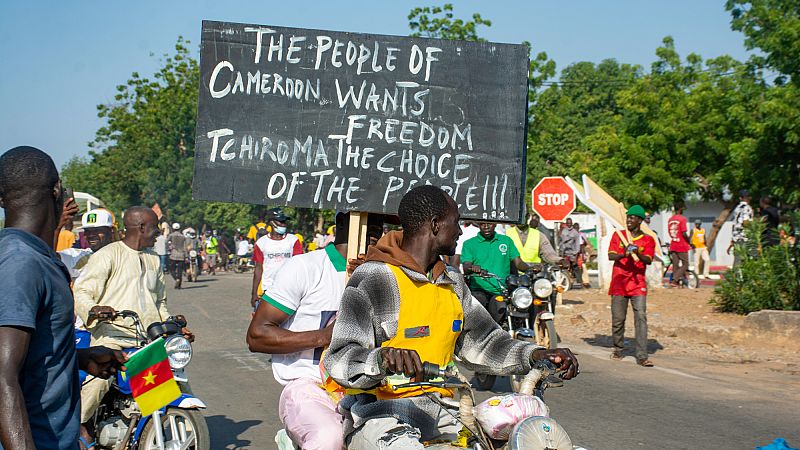Protests in Cameroon following Paul Biya's election as citizens demand change

There was some semblance of normality in parts of Cameroon on Tuesday as protests swept across the country following the announcement that President Paul Biya was elected for an eighth term in office.
The declaration on Monday that the 92-year-old had again won the presidential election came as no surprise to many residents in the capital, Yaoundé.
With little likelihood of things changing politically, they are demanding that at least there is an improvement in their living conditions.
“What I expect from the president-elect is that he must change the situation of Cameroonians. We live in too much poverty,” said residentFrançois Ebanda Eke.
The opposition have cried foul. They believe the vote was rigged.
“The population knows very well that the Constitutional Council and the Electoral Commission are just an extension of the regime,” said Rebecca Enonchong.
She is a member of the political platform which supports opposition candidate, Issa Tchiroma Bakary.
He claimed victory last week, but the official results showed him winning 35.19 per cent against Biya’s 53.66 per cent.
The opposition say voters are clamouring for change after more than four decades of Biya's rule, during which economic development has stagnated.
Some experts believe the unrest will escalate and are calling on the president to initiate a national mediation to calm the situation.
Political analyst, Esair Ateba, said it seems like Biya’s latest term in office “will not be a promising one for Cameroonian society”.
“[There have been] protests and demonstrations in many regions and major cities, calling on the president to step down and hand over power to someone else in order to break the deadlock,” he said.
In office since 1982, Biya has kept his grip on power for longer than many citizens have been alive. Over 70 per cent of the country’s almost 30 million people are under 35.
While Cameroon is an oil-producing country with modest economic growth, young people say the benefits have not trickled down beyond the elites.
The president’s health is also a topic of speculation. He spends most of his time in Europe, leaving governance of the country to key party officials and family members.
Cameroon's government said over 5,000 national and international election observers were accredited to monitor the election.
Local civil society groups noted several irregularities including the presence of deceased voters on electoral lists, unequal distribution of ballot papers and attempts at ballot box-stuffing.
The African Union mission said the vote was “conducted largely in accordance with regional, continental and international standards.”
Today

